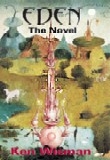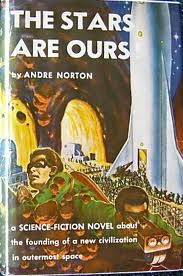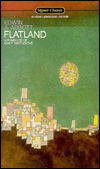The Man on the Ceiling, by Steve Rasnic Tem, Melanie Tem
Book Review by C. Dennis Moore
Have you read this book?
"Everything we're about to tell you here is true," the Tems say in the beginning of their "novel" The Man on the Ceiling.
Don't you believe it. You mustn't. If you take what's in these pages, the story they tell, as truth, they'll break your heart. There's a long-standing saying that writers make the best liars because it's what they're paid to do, but there's something else writers are really good at and that's revealing those truths you know in your heart, but don't have the words to express. So Steve Rasnic Tem and Melanie Tem have given you the words in this book and in doing so, I imagine, will be leaving a trail of broken-hearted readers everywhere they look.
"Melanie used to wake me in the middle of the night to tell me there was a man in our bedroom window, or a man on the ceiling. . . . Sometimes my careful explanations irritated her enormously. Still mostly asleep, she would wonder aloud why I couldn't see the man on the ceiling. Was I playing games with her? Trying to placate her when I knew the awful truth?
"In fact, despite my attempts at reason, I believed in the man on the ceiling. I always had."
This book, The Man on the Ceiling, began life as a novella, which then went on to win The World Fantasy Award, the Bram Stoker Award, and the International Horror Guild Award, which the back cover claims is the only work to ever win all three. That is quite an achievement, and something the Tems could definitely take with them the rest of their days. But that's not enough. No, they decided to expand on that novella (because, let's be honest, who the hell reads novellas anyway except other writers?) and develop it into this longer work, 366 pages, that isn't just a fictional story, it isn't a memoir of their lives, loves, and losses, it's an amalgam of both. It's difficult to tell in here where the real ends and the fanciful begins because they both write about these events with such conviction we're left with the certainty that everything they're saying IS true.
"My first husband didn't believe in the man on the ceiling.
"At least, he said he didn't. He said he never saw him . . . I think he did, though, and was too afraid to name what he saw. I think he believed hat if he didn't name it, it wouldn't be real. And so, I think, the man on the ceiling got him a long time ago."
The Man on the Ceiling isn't a novel in the sense there's a discernible beginning, middle, and end; more, it's a collection of episodes of their life, not in any linear order, but not necessarily random, either. From their oldest son's troubles with the law to the day they adopted him, to the death of their cat and their granddaughter's understanding of what dead meant and on to the day two planes collided over their neighborhood and rained down metal parts and mayhem, these are stories we all have--maybe the details change, but the truth is always the same. Every life is full of dashed hopes and loss (I wish I could say the Tems then offer some words of hope and inspiration to make it all better, but the truth is that's just not how life works, is it? And again, there it is, the "truth"). We live our lives and name the things we don't understand so we can better understand them, or we face the things we fear so we see there is nothing there to fear, but then there come those events, like the death of a 9-year-old son, that cause our lives to take turns we hadn't planned for and suddenly any amount of certainty over the course we anticipated our lives would take is gone and we're left where we were before, uncertain and fearful. And then it's the next day and we begin again, naming the things we don't understand and facing the things we fear. We live, each of us. And that's the truth.
It's not often I'm able to discern, or even care to look for, a theme in any particular work. For me, it's about style and form and execution. But there is a definite theme to The Man on the Ceiling, and it's eventuality. Or possibly fate.
The man on the ceiling isn't real, but the Tems write about him as if he is (and their descriptions of him are pretty terrifying). The man on the ceiling is the fate that awaits us all. We all live, and eventually, there's just no way around it, we die, all of us. It's not something we spend much time thinking about, really, but stop for just a moment and look around. Out the window, those people you see walking or driving by, they will die. The voices coming from other rooms in your house, sooner or later, those voices will be silenced. Everyone reading this review, eventually, is going to be no more. Some unexpected night, the man will climb down from the ceiling and creep up to their beds and kiss their cheek and the next morning or later in the week, they'll just be gone. And all that will be left of them will be their stories.
Like I said, this book, if you believe them, will break your heart.
I read a lot and I'm familiar will many many authors, especially speculative fiction authors. I've seen the novels of the Tems, both their separate and collaborative works, and I've probably read a few of their short stories in various publications, but this is the first time I've honestly taken notice of them. This will be the novel that, from now on, reminds me just how brilliant the Tems are at this. It's only 4 months into the year and already I can guarantee you The Man on the Ceiling is going to be one of the absolute best things I read all year.
The two have, not only such incredible imaginations, but they way they use this language just leaves me floored sometimes.
Steve: "But in the invisible house we live in, the house that overlaps and shares features with this physical structure sitting on this hill and then goes far beyond it, I know where the furniture goes even though its appearance changes every time I look at it. One room holds a cabinet-style phonograph and a box full of the shards of my mother's records I've broken. In another room I find my first tricycle buried under huge black chunks of coal. One door is the door to what I dreamed last night, which I must never open again. Another is the door to nowhere."
Melanie: "Like other powerful tools--language, nuclear energy, genetic engineering--imagination carries risks. If I had imagined my children too vividly before I became their mother, I might have missed who they were and how they would reveal themselves to me. As they grew up, I tried to resist imagining the best or the worst for them (which is to say, my version of the best and worst, not theirs), lest anticipation or worry interfere with meeting them where they were rather than where I hoped or feared they might be."
It's been a rare occurrence lately that I've read a book that made me have to take time out for it, have to see what came next, and I attribute that mostly to the Tems' writing. As a writer, if you're smart and understand that a writer never truly stops learning this craft, you study everything, and when you come across something so completely well-done and beautiful, you can't help but want to immerse yourself in it as much as possible. And that's what The Man on the Ceiling does. Well, that, and it breaks your heart.
Don't you believe it. You mustn't. If you take what's in these pages, the story they tell, as truth, they'll break your heart. There's a long-standing saying that writers make the best liars because it's what they're paid to do, but there's something else writers are really good at and that's revealing those truths you know in your heart, but don't have the words to express. So Steve Rasnic Tem and Melanie Tem have given you the words in this book and in doing so, I imagine, will be leaving a trail of broken-hearted readers everywhere they look.
"Melanie used to wake me in the middle of the night to tell me there was a man in our bedroom window, or a man on the ceiling. . . . Sometimes my careful explanations irritated her enormously. Still mostly asleep, she would wonder aloud why I couldn't see the man on the ceiling. Was I playing games with her? Trying to placate her when I knew the awful truth?
"In fact, despite my attempts at reason, I believed in the man on the ceiling. I always had."
This book, The Man on the Ceiling, began life as a novella, which then went on to win The World Fantasy Award, the Bram Stoker Award, and the International Horror Guild Award, which the back cover claims is the only work to ever win all three. That is quite an achievement, and something the Tems could definitely take with them the rest of their days. But that's not enough. No, they decided to expand on that novella (because, let's be honest, who the hell reads novellas anyway except other writers?) and develop it into this longer work, 366 pages, that isn't just a fictional story, it isn't a memoir of their lives, loves, and losses, it's an amalgam of both. It's difficult to tell in here where the real ends and the fanciful begins because they both write about these events with such conviction we're left with the certainty that everything they're saying IS true.
"My first husband didn't believe in the man on the ceiling.
"At least, he said he didn't. He said he never saw him . . . I think he did, though, and was too afraid to name what he saw. I think he believed hat if he didn't name it, it wouldn't be real. And so, I think, the man on the ceiling got him a long time ago."
The Man on the Ceiling isn't a novel in the sense there's a discernible beginning, middle, and end; more, it's a collection of episodes of their life, not in any linear order, but not necessarily random, either. From their oldest son's troubles with the law to the day they adopted him, to the death of their cat and their granddaughter's understanding of what dead meant and on to the day two planes collided over their neighborhood and rained down metal parts and mayhem, these are stories we all have--maybe the details change, but the truth is always the same. Every life is full of dashed hopes and loss (I wish I could say the Tems then offer some words of hope and inspiration to make it all better, but the truth is that's just not how life works, is it? And again, there it is, the "truth"). We live our lives and name the things we don't understand so we can better understand them, or we face the things we fear so we see there is nothing there to fear, but then there come those events, like the death of a 9-year-old son, that cause our lives to take turns we hadn't planned for and suddenly any amount of certainty over the course we anticipated our lives would take is gone and we're left where we were before, uncertain and fearful. And then it's the next day and we begin again, naming the things we don't understand and facing the things we fear. We live, each of us. And that's the truth.
It's not often I'm able to discern, or even care to look for, a theme in any particular work. For me, it's about style and form and execution. But there is a definite theme to The Man on the Ceiling, and it's eventuality. Or possibly fate.
The man on the ceiling isn't real, but the Tems write about him as if he is (and their descriptions of him are pretty terrifying). The man on the ceiling is the fate that awaits us all. We all live, and eventually, there's just no way around it, we die, all of us. It's not something we spend much time thinking about, really, but stop for just a moment and look around. Out the window, those people you see walking or driving by, they will die. The voices coming from other rooms in your house, sooner or later, those voices will be silenced. Everyone reading this review, eventually, is going to be no more. Some unexpected night, the man will climb down from the ceiling and creep up to their beds and kiss their cheek and the next morning or later in the week, they'll just be gone. And all that will be left of them will be their stories.
Like I said, this book, if you believe them, will break your heart.
I read a lot and I'm familiar will many many authors, especially speculative fiction authors. I've seen the novels of the Tems, both their separate and collaborative works, and I've probably read a few of their short stories in various publications, but this is the first time I've honestly taken notice of them. This will be the novel that, from now on, reminds me just how brilliant the Tems are at this. It's only 4 months into the year and already I can guarantee you The Man on the Ceiling is going to be one of the absolute best things I read all year.
The two have, not only such incredible imaginations, but they way they use this language just leaves me floored sometimes.
Steve: "But in the invisible house we live in, the house that overlaps and shares features with this physical structure sitting on this hill and then goes far beyond it, I know where the furniture goes even though its appearance changes every time I look at it. One room holds a cabinet-style phonograph and a box full of the shards of my mother's records I've broken. In another room I find my first tricycle buried under huge black chunks of coal. One door is the door to what I dreamed last night, which I must never open again. Another is the door to nowhere."
Melanie: "Like other powerful tools--language, nuclear energy, genetic engineering--imagination carries risks. If I had imagined my children too vividly before I became their mother, I might have missed who they were and how they would reveal themselves to me. As they grew up, I tried to resist imagining the best or the worst for them (which is to say, my version of the best and worst, not theirs), lest anticipation or worry interfere with meeting them where they were rather than where I hoped or feared they might be."
It's been a rare occurrence lately that I've read a book that made me have to take time out for it, have to see what came next, and I attribute that mostly to the Tems' writing. As a writer, if you're smart and understand that a writer never truly stops learning this craft, you study everything, and when you come across something so completely well-done and beautiful, you can't help but want to immerse yourself in it as much as possible. And that's what The Man on the Ceiling does. Well, that, and it breaks your heart.
|
Click here to buy The Man on the Ceiling, by Steve Rasnic Tem, Melanie Tem on Amazon
|
The Man on the Ceiling, by Steve Rasnic Tem, Melanie Tem on Amazon
| More Books You Might Like |
Comment on The Man on the Ceiling, by Steve Rasnic Tem, Melanie Tem
| Comments on The Man on the Ceiling, by Steve Rasnic Tem, Melanie Tem |
| There are no comments on this book. |




